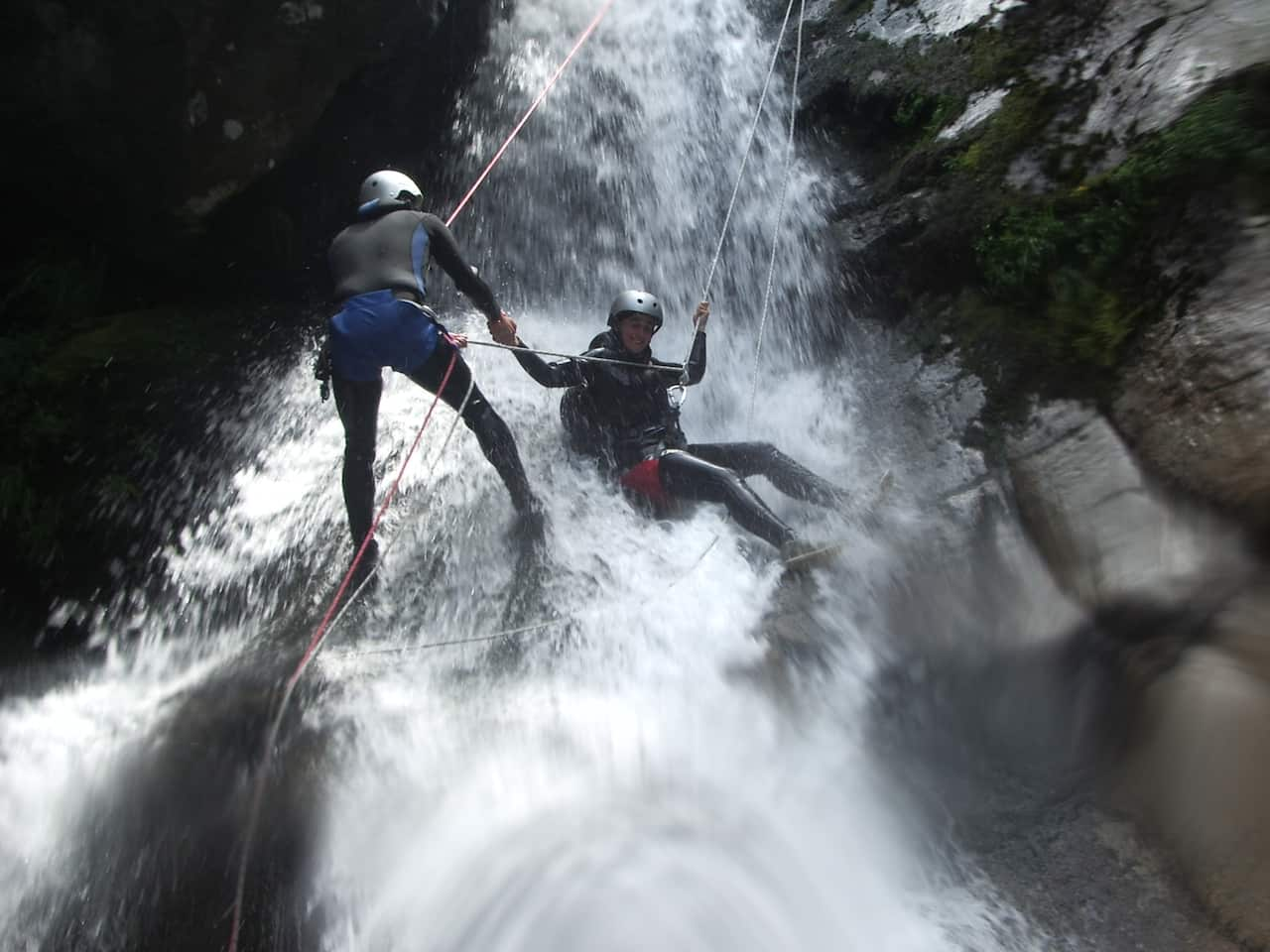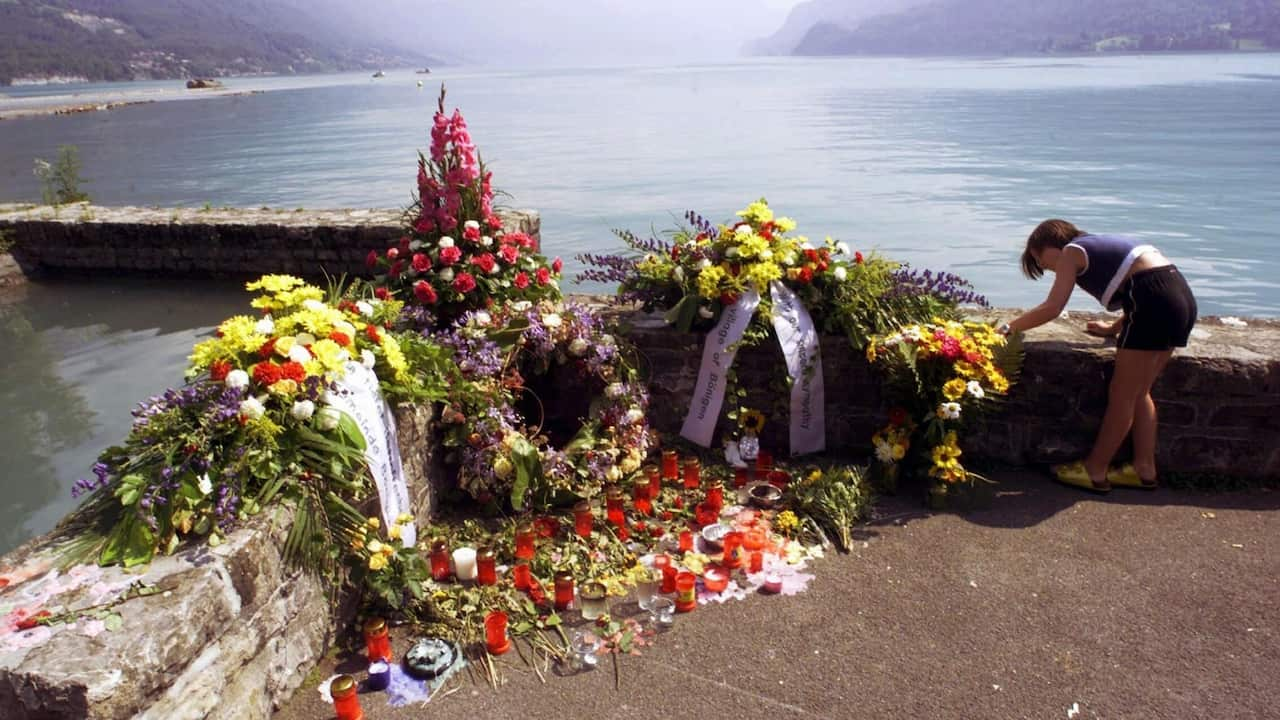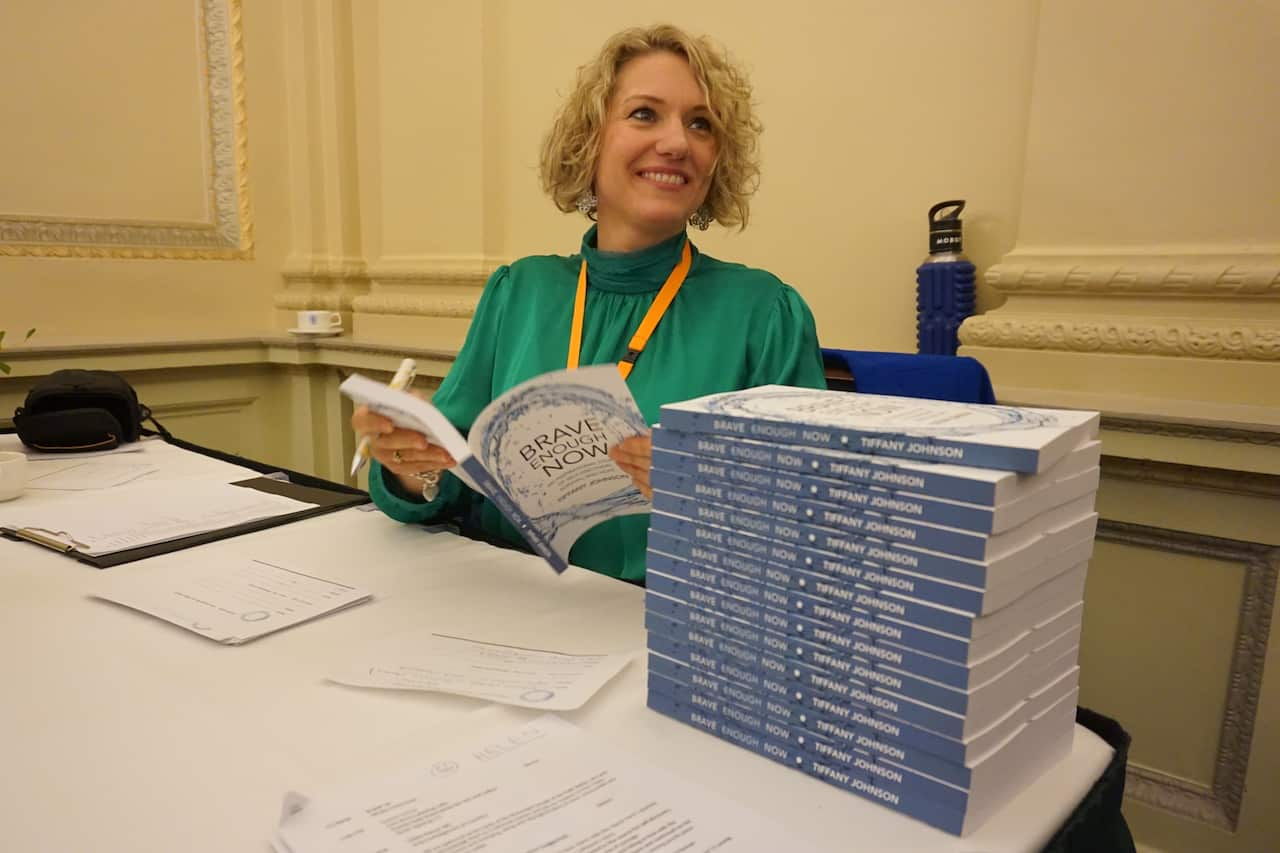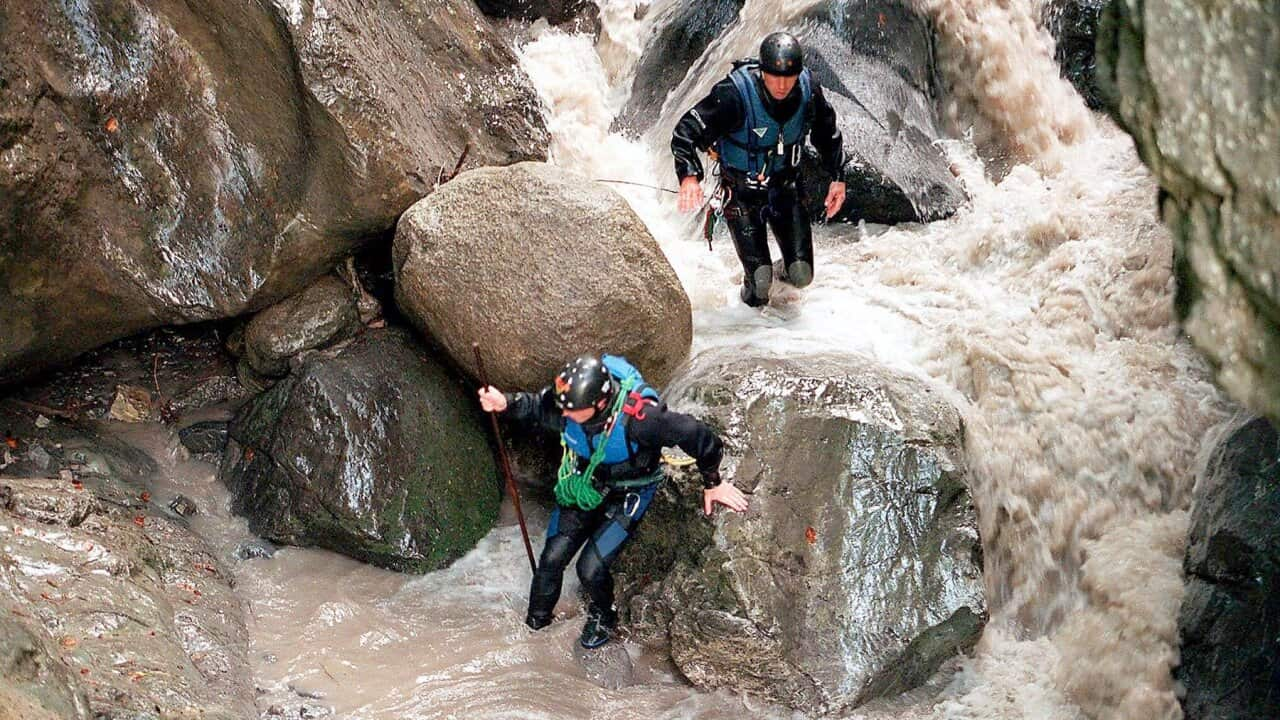Tiffany Johnson is a survivor of the 1999 Swiss canyoning disaster that saw 21 people lose their lives, 14 of them Australians. She has written a memoir 'Brave Enough Now', which details her journey from the harrowing event to living a hopeful and grateful life.
The tragic event took place on July 27, 1999 near Interlaken high in the Swiss Alps. The crew of 45 backpackers and adventurers from Australia, New Zealand, South Africa, England and Switzerland were enjoying a day of outdoor fun when they were hit by a two-metre flash flood in the Saxetenbach Gorge, a remote canyon above Wilderswil.
Only six of those who were in the water during the flash flood survived, as 21 other young tourists perished.

"Before the tour, many of the participants did not know what 'canyoning' is," says Johnson of the watersport that many mistake for canoeing.
"Canyoning is using your body on rocks, on boulders, making your way down through a canyon with harnesses, and you wear a wetsuit and a helmet. You hang on to two different parts of the boulders, jumping and sliding and it's quite a fun sport."
How did the accident happen?
The Australian remembers exactly how the disaster unfolded those two decades ago.
Just before the group entered the gorge, it started to rain. But the guide reassured the participants that there were several exit points along the gorge. The group proceeded into the canyon and was having "an amazing time", Johnson recalls.
"The water was crystal clear and it was like this garden of Eden. Just magical."
However, midway through the canyon, the Australian realised that the water had started to rise, moving from the height of her ankles to her knees in just seconds.
"It had gone from this beautiful crystal clear to really mucky muddy brown," Johnson says of the speedily rising water.
The guide told the participants that they had to hurry up, so Johnson took the next jump as the flood grew.
"There was a guide in the little water hole where I landed," she says, "and as I came back up for air he put his hand out and tried to grab me and our hands slipped past each other. I was pulled down into the water and swept away."
It was at that moment that a wall of water, the body of the flash flood, came down the canyon and smashed into her friends who had remained, waiting their turn to jump.
A fraction of a second later Johnson was hit by the flash flood.
"I knew that if I tried to fight the water, I could never win," she says. "So I just surrendered my body and let go. And I was tumbled around like a washing machine and logs and rocks hit me. I just tried to get up for air as often as I could and then eventually, I was pushed into a giant boulder, with a huge big log that rammed me in my stomach."
As the Australian came up for air she saw the wild water gushing down the canyon, carrying the bodies of the dead.
"I saw all of my friends floating past with their face down and I knew that they were dead instantly. And I looked over to my left side where the bank was, but I knew that it was just too far away - I would never make it."
Johnson then had to make a crucial, life-saving decision: Whether to stay at the boulder, risking being engulfed by water and crushed by a boulder or water-borne log, or whether she should let go and let the water shoot her along the gorge.
She chose the latter.
"I thought it was safer if I let go, and so I wiggled and went forward and went down, was pulled under the water again and kept going up for snippets of air when I could and then it got to a point when I thought - that's it, I have no air left. And I prayed."

Things got worse before they got better as Johnson was carried down the rocky waterway and thrown over a waterfall.
"Sporadically I shot up out of the water", she says. "My whole body went flying up out of the water and I was at the top of a giant waterfall. It was absolutely huge. It was at least 20 metres wide. I went over the waterfall. And then, when I came back up for air again, I was in this tiny little alcove that was crystal clear. And I was so exhausted."
She tried to move her legs, but they wouldn't work, so she used her arms to make her way over to the water's edge. As she got to the bank, she grabbed at the grass to pull herself out of the water, "but it just kept slipping through my fingers", she says. She also had a branch struck in her life-jacket restricting both of her arms, so wriggled back into the water to eventually remove it.
Then, by a stroke of luck she was pulled up onto the bank by another survivor, then both were taken to safety by the very same tour guide who had reached in vain for Johnson's hand after her initial jump.
Finding peace and closure, 20 years on
Every day the 41-year-old is reminded of her experience in the Swiss Alps, and was diagnosed with PTSD in the wake of her experience. She has also suffered from diabetes since the disaster, and uses a pump to regulate the supply of insulin in her bloodstream.
Apart from permanently altering her health, she says the flash flood tragedy also fundamentally affected her persona.
"It definitely changed my personality," Johnson says. "I was always a happy kind of person. But I became, I think, more present, as much as I possibly can. And more grateful and appreciative of all the wonders that we get in our lives, just like watching the daffodils come out in spring."
Grateful, positive and present - that's her attitude to life today.
And Johnson says she is extremely grateful for the professional help she has received. Westmead Hospital in Sydney played a key role, treating her PTSD. There she was given an array of tools to overcome flashbacks and nightmares, as well as the many other physical and mental injuries stemming from the incident.
"I had survivor guilt, which was really hard to deal with," says Johnson, who found it difficult to sleep and adjust to everyday life. Even during the day, she says, "something would happen and I would instantly see the water or feel it or hear it."
In late July this year, 20 years on from the tragedy, Johnson returned to Switzerland for the first time, and attended a memorial service held in Interlaken. Her husband and children accompanied her.
"It was amazing and it was terrifying all at once. I was on the plane and my children said to me: 'Mummy, Mummy, look out the window!' They had never seen the Alps before. They had never left Australia before. And when I saw those mountains, I was terrified. I felt like I was facing my demon. My biggest fear was those mountains."
But when she went back into the canyon, she says she felt relief and some closure.
"I felt this amazing sense of peace wash over me and I knew that my friends who died were okay and that they were safe and they were peaceful and I finally felt peaceful. And then I was safe. It was really healing."

